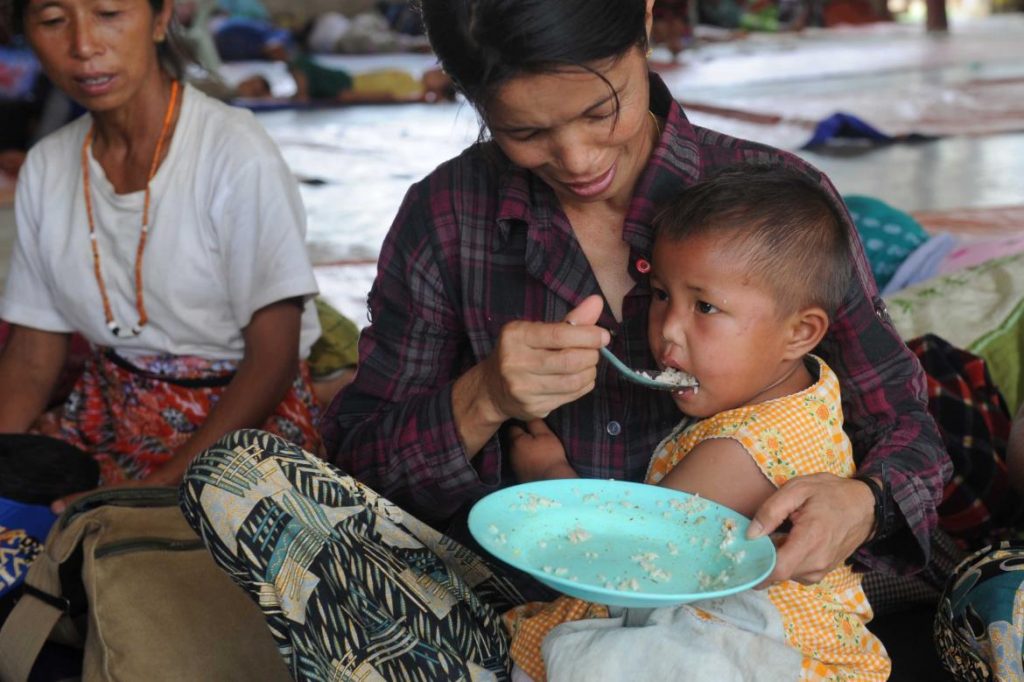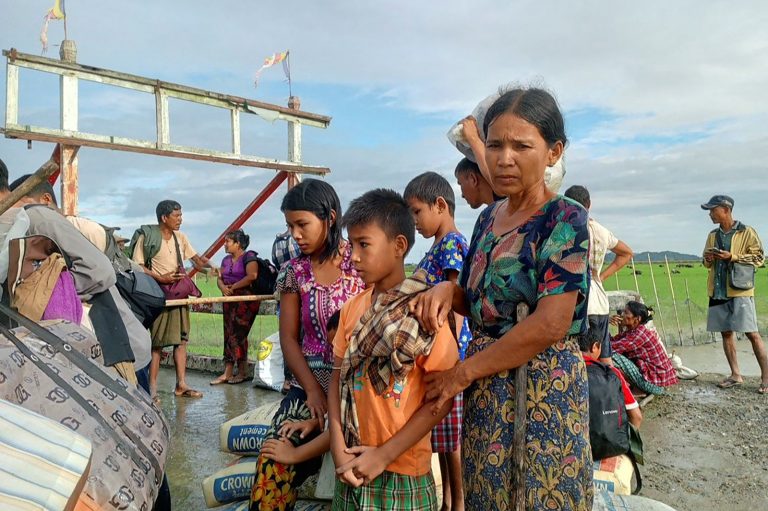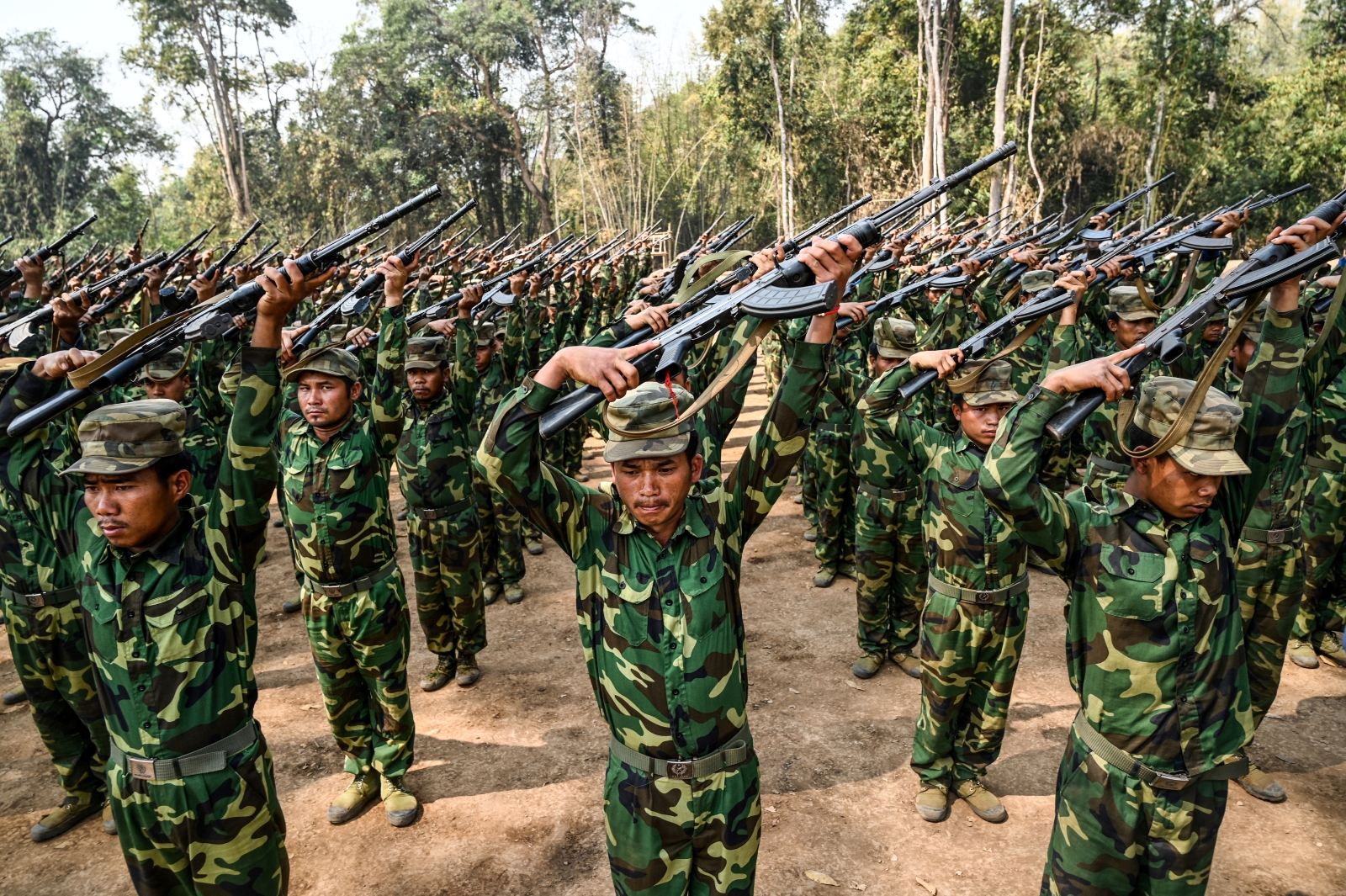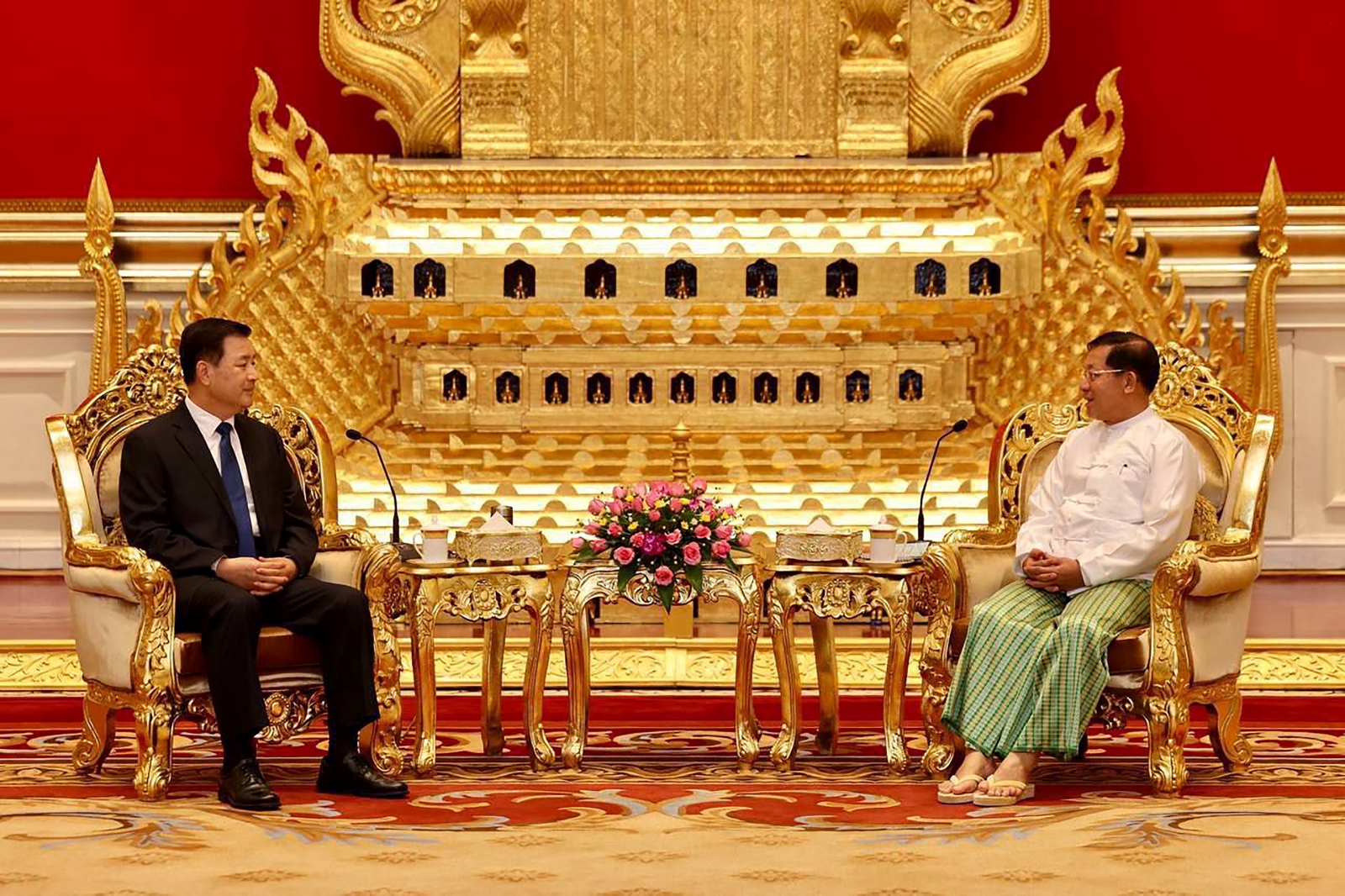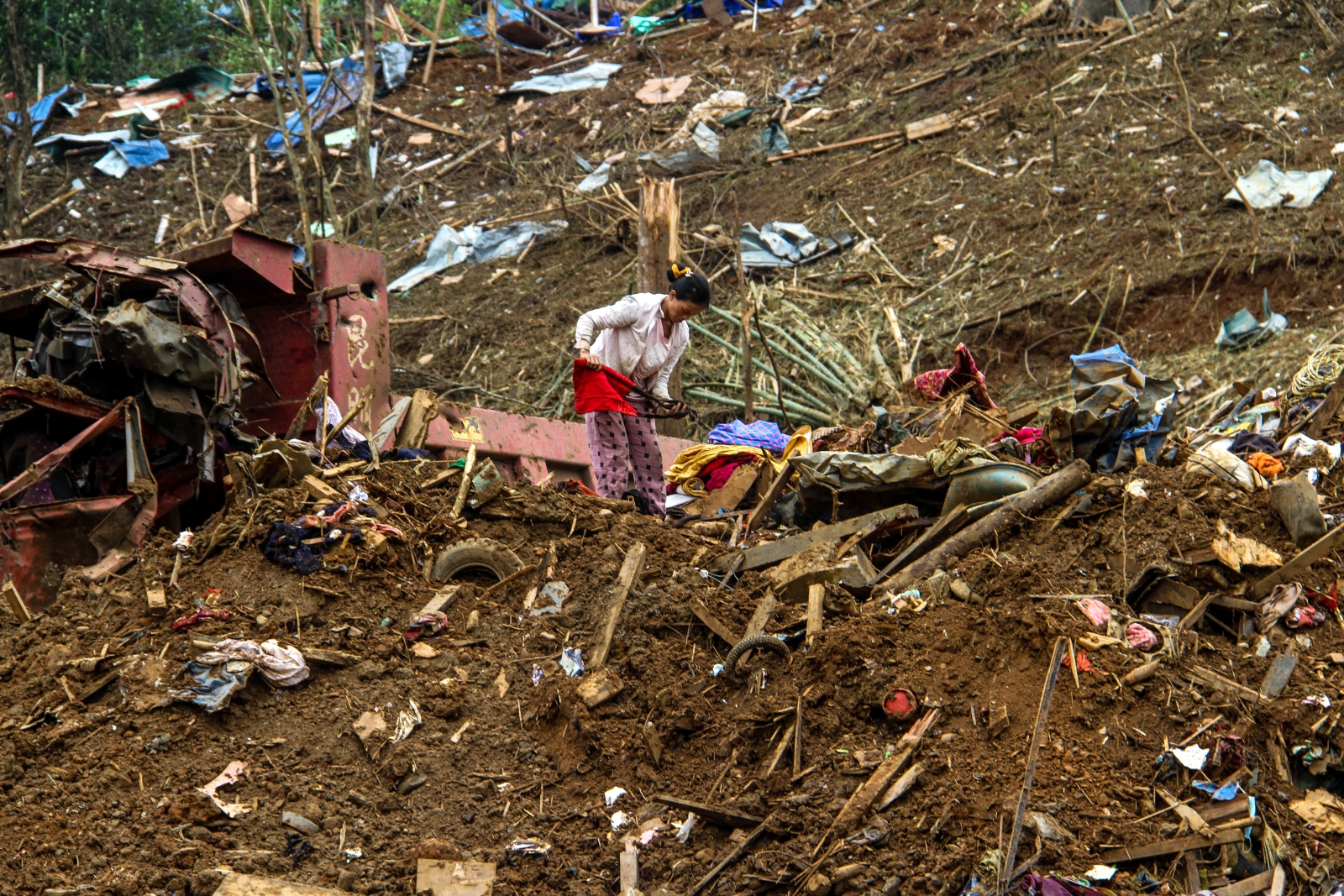Despite initial challenges, a pilot project to pay allowances to IDPs in Kachin State through mobile phone transfers has been a big success and will be expanded next year to benefit 3,400 households.
By SU MYAT MON | FRONTIER
WHEN THE United Nations World Food Programme launched the first pilot project in Myanmar using mobile cash transfers to provide humanitarian aid, the recipients – victims of conflict in Kachin State – found the concept a bit overwhelming.
“We did not like it because we were not familiar with it; most of us were farmers,” said U Naw Seng, leader of the Tat Kone San Pya Baptist Church IDP camp in the state capital, Myitkyina. “Now, we appreciate [the transfers].”
WFP launched a pilot project at the Du Kahtawng Baptist and Garlarlay IDP camps in February that has since been expanded to four more camps.
The pilot involved 112 conflict-affected families, which each received a monthly allowance of either K9,000 or K13,000 a person depending on the household’s level of vulnerability. The IDP allowance has since been increased to between K13,000 and K15,000.
Support more independent journalism like this. Sign up to be a Frontier member.
The allowance, provided through Wave Money, a joint venture among Telenor, FMI and Yoma Bank, was previously provided to recipients as cash.
Recipients now receive an SMS notification from WFP and can then withdraw the cash at the nearest authorised “Wave Shop” – a neighbourhood store that is registered as a Wave Money agent.
“When food is available in the markets, WFP provides cash assistance rather than distributing food,” the UN agency’s country director, Mr Dom Scalpelli, said in a March news release announcing the launch of the pilot.
The release also said WFP would extend the mobile cash transfers to another 172 families, including some at IDP camps in Waingmaw Township, across the Ayeyarwady from Myitkyina.
“Using mobile phones to transfer money can make the process faster, safer and more convenient for the recipients, especially in a context like Myanmar where the telecommunications industry is developing every day,” Scalpelli said at the time.
WFP provided mobile phones and SIM cards to recipients, as well as training in the new methodology, the news release said.
WFP declined to say what it costs to transfer the money. For transfers between Wave Shops, Wave Money typically charges from K400 for transfers of up to K10,000 and K2,500 for transfers ranging from K150,000 to K200,000.
Daw Lwam Nang, 50, who has been living at the Tat Kone San Pya Baptist Church camp with her family since October 2011, said she had initially been wary of the mobile transfers because she did understand how they worked.
“It’s okay now, and my only concern is that I’ll have a problem with the phone,” she said.
Lwam Nang said the Wave Money transfers saved time because IDP residents using the service no longer had to wait for the WFP to visit the camps to distribute the cash allowances.
“We don’t have to wait and we can go to the Wave Money shop at any time when it’s convenient,” she said.
Mr Marc Gschwend, from the WFP’s cash working group, said mobile transfers were empowering for IDPs because they learned how to use an e-wallet account – a skill that would be useful for the rest of their lives, regardless of where they are.
The cash transfers were also more convenient for IDPs than food and other aid because they could use the money to buy what they needed, Gschwend told Frontier on November 21.
When IDPs were receiving food aid, such as rice, it was common for them to sell some of the products they were given so they could get cash instead, he said.
Gschwend said the WFP was planning to “ramp up” the transfers from February to eventually reach 3,400 households in Kachin IDP camps.
There were also plans to extend the service to other areas of Myanmar, he said.
TOP PHOTO: A mother feeds her child at a camp for IDPs in Waingmaw Township, Kachin State. (AFP)


